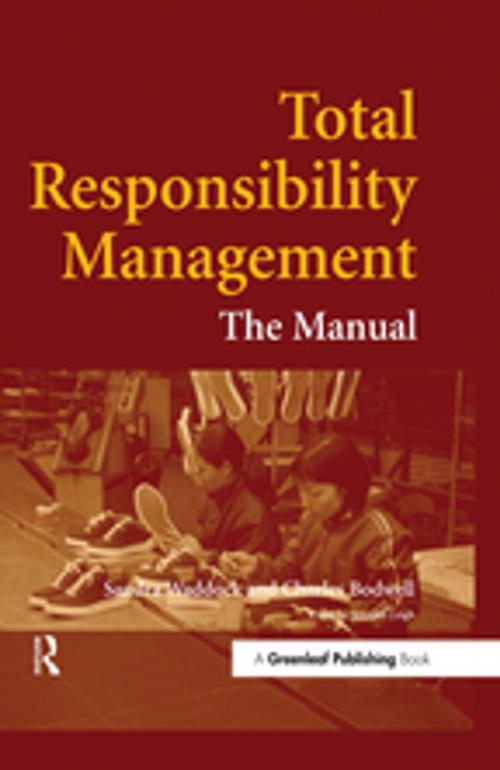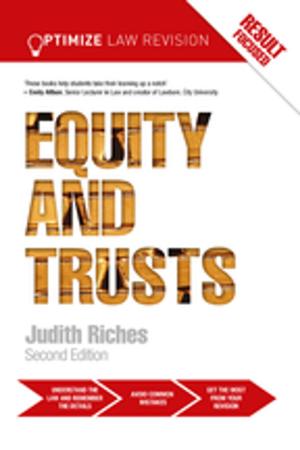Total Responsibility Management
The Manual
Business & Finance, Industries & Professions, Quality Control, Business Reference, Business Ethics| Author: | Sandra Waddock, Charles Bodwell | ISBN: | 9781351280389 |
| Publisher: | Taylor and Francis | Publication: | September 8, 2017 |
| Imprint: | Routledge | Language: | English |
| Author: | Sandra Waddock, Charles Bodwell |
| ISBN: | 9781351280389 |
| Publisher: | Taylor and Francis |
| Publication: | September 8, 2017 |
| Imprint: | Routledge |
| Language: | English |
Almost every manager today knows that satisfying customers by meeting their quality demands is a critical component of business success. Quality management is a given in modern companies – a competitive imperative. Yet it was not always so. Back when the quality movement was getting started, few managers really understood either the importance of quality to customers or how to manage for quality. Much the same could be said today about managing responsibility. Why and how should responsibility be managed? What is responsibility management? Total Responsibility Management answers these questions while at the same time providing a systemic framework for managing a company's responsibilities to stakeholders and the natural environment that can be applied in a wide range of contexts. This framework uses managerial familiarity with quality management to illustrate the drivers for responsibility management. Companies know that product or service quality affects their customer relationships and the trust customers have in the company's products and services. So, too, a company's management of its responsibilities to other constituencies affects its relationships with those other stakeholders and the natural environment. But why bother? The answer is quite simple. Never has it been easier for employees, reporters, activists, investors, community members, the media and other critical observers to find fault with companies and their subsidiaries. A problem identified, even in a remote region or within a remote supplier, can instantaneously be transmitted around the world at the click of a mouse. Ask footwear, toy, clothing and other highly visible branded companies what their recent experience with corporate critics has been and they will tell you about the need to manage their stakeholder responsibilities (human rights, labour relations, environmental, integrity-related) or face significant consequences in the limelight of public opinion. Managers will discover that whether they do it consciously or not, they are already managing responsibility, just as companies were already managing quality when the quality movement hit. This manual makes the process of managing responsibilities to and relationships with stakeholders and nature explicit. Making the process explicit is important because too few of today's decisions-makers yet understand how they are managing stakeholder responsibilities as well as they understand how to manage quality. Managing responsibilities goes well beyond traditional 'do good' or discretionary activities associated with philanthropy and volunteerism, which are frequently termed 'corporate social responsibility'. In its broadest sense, responsibility management means taking corporate citizenship seriously as a core part of the way the company develops and implements its business model. The specifics of responsibility management are unique to each company, its industry, its products and its stakeholders, yet, as this manual illustrates, a general approach to managing responsibility is feasible – indeed, is increasingly necessary. Based on work undertaken by Boston College and the International Labour Office, Total Responsibility Management is the first CSR manual. Its original case studies add value to a range of tools and exercises that will make it required reading for all managers in need of a practical guide to managing responsibility and to students and researchers looking for an overarching framework to contextualise the changing responsibilities of global business.
Almost every manager today knows that satisfying customers by meeting their quality demands is a critical component of business success. Quality management is a given in modern companies – a competitive imperative. Yet it was not always so. Back when the quality movement was getting started, few managers really understood either the importance of quality to customers or how to manage for quality. Much the same could be said today about managing responsibility. Why and how should responsibility be managed? What is responsibility management? Total Responsibility Management answers these questions while at the same time providing a systemic framework for managing a company's responsibilities to stakeholders and the natural environment that can be applied in a wide range of contexts. This framework uses managerial familiarity with quality management to illustrate the drivers for responsibility management. Companies know that product or service quality affects their customer relationships and the trust customers have in the company's products and services. So, too, a company's management of its responsibilities to other constituencies affects its relationships with those other stakeholders and the natural environment. But why bother? The answer is quite simple. Never has it been easier for employees, reporters, activists, investors, community members, the media and other critical observers to find fault with companies and their subsidiaries. A problem identified, even in a remote region or within a remote supplier, can instantaneously be transmitted around the world at the click of a mouse. Ask footwear, toy, clothing and other highly visible branded companies what their recent experience with corporate critics has been and they will tell you about the need to manage their stakeholder responsibilities (human rights, labour relations, environmental, integrity-related) or face significant consequences in the limelight of public opinion. Managers will discover that whether they do it consciously or not, they are already managing responsibility, just as companies were already managing quality when the quality movement hit. This manual makes the process of managing responsibilities to and relationships with stakeholders and nature explicit. Making the process explicit is important because too few of today's decisions-makers yet understand how they are managing stakeholder responsibilities as well as they understand how to manage quality. Managing responsibilities goes well beyond traditional 'do good' or discretionary activities associated with philanthropy and volunteerism, which are frequently termed 'corporate social responsibility'. In its broadest sense, responsibility management means taking corporate citizenship seriously as a core part of the way the company develops and implements its business model. The specifics of responsibility management are unique to each company, its industry, its products and its stakeholders, yet, as this manual illustrates, a general approach to managing responsibility is feasible – indeed, is increasingly necessary. Based on work undertaken by Boston College and the International Labour Office, Total Responsibility Management is the first CSR manual. Its original case studies add value to a range of tools and exercises that will make it required reading for all managers in need of a practical guide to managing responsibility and to students and researchers looking for an overarching framework to contextualise the changing responsibilities of global business.















